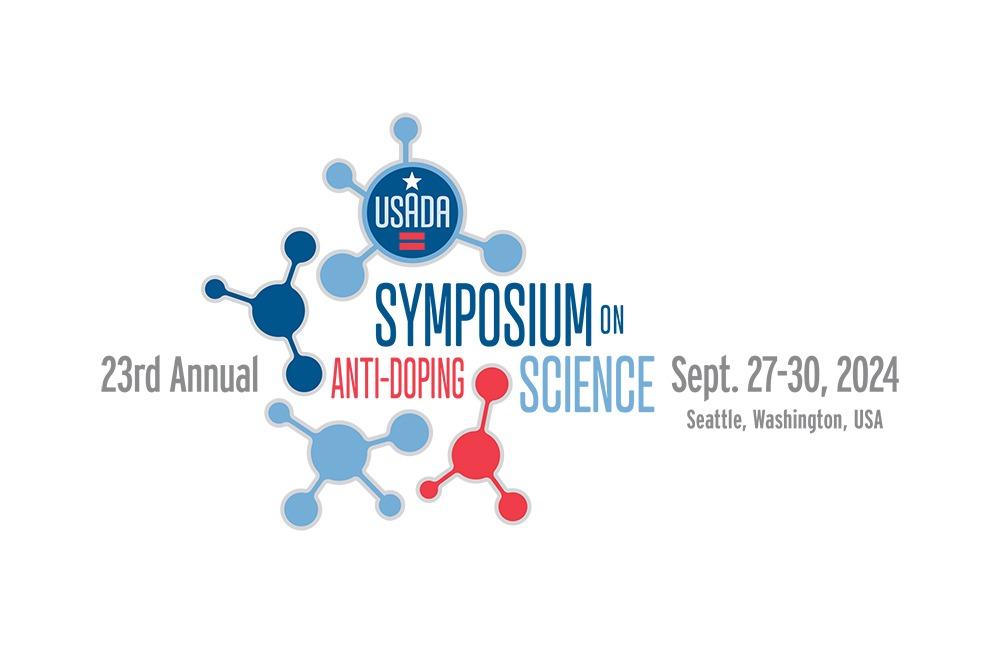
Held in Seattle, Washington, the 23rd Annual USADA Symposium on Anti-Doping Science recently united more than 85 scientific and medical experts from 28 countries to discuss anabolic-androgenic steroids (AAS) and other anabolic agents that have taken center stage as the doping agents of choice in many sports globally.
“As always, we were honored to host experts from around the world, including our colleagues from the anti-doping community and experts from a wide range of industries, and it’s truly incredible to see what can be achieved on behalf of clean athletes when the world comes together and unites around a common goal,” said USADA CEO Travis T. Tygart. “These open, honest, and robust interactions are absolutely critical to the global anti-doping movement’s ability to advance detection methods, stay ahead of the cheaters, and best serve clean athletes.”
Stakeholders from the following organizations participated in these important discussions:
- 26 WADA-accredited laboratories, including: Catalonian Antidoping Laboratory, German Sport University Cologne Laboratory, DoCoMo Ghent Laboratory, Karolinska Institute, Sweden, Norwegian Doping Control Laboratory, Seibersdorf Laboratory Austria, Sports Medicine Research and Testing Laboratory (SMRTL), University of California, Los Angeles (UCLA), and the University of Lausanne, among others
- National Anti-Doping Agencies, including: Australia, Austria, Barbados, Denmark, Germany, Iceland, Japan, Korea, Netherlands, New Zealand, Norway, Sweden, and the U.K.
- International Federations and the International Testing Agency
- International Paralympic Committee
- National Football League
- Multiple universities from around the U.S. and the world that are engaged in anti-doping research
- Partnership for Clean Competition
When it comes to the substances of choice for those who decide to cheat, anabolic agents, such as steroids and selective androgen receptor modulators (SARMS), continue to top the list of positive tests every year. Anabolic agents, which come in forms ranging from injectables, to topical creams, to oral preparations, have unfortunately become increasingly common in the anti-aging and wellness industries, as well as illegally marketed in supplements. New designer AAS are also a constant threat, with preclinical and black-market products containing AAS dangerously accessible to consumers.
While detection methods have grown extremely sensitive in recent years, that sensitivity also makes it even more important that anti-doping agencies can accurately identify contamination scenarios from intentional doping.
As such, the Symposium focused on the direct and indirect detection of more sophisticated anabolic agents, along with strategies to combat unintentional exposure to anabolic agents through different routes of administration. International experts also discussed how to evolve testing and strategies to address the shifting threats posed by anabolic agents.
“Given the prevalence and ongoing threat anabolic agents pose to clean athletes, gathering the brightest minds from around the world is more important than ever” said Dr. Matthew Fedoruk, USADA’s Chief Science Officer. “The complexity of anti-doping work is ever growing, therefore evolution of detection and deterrence tools to combat doping threats with anabolic agents continues to be a high scientific and policy priority.”
At the Symposium, themed “Anabolic agent action, (ab)use and detection: old problem; new tricks?”, panelists and participants explored a wide range of topics, including the following:
- Professor Harrison “Skip” Pope of Harvard Medical School led a keynote presentation on how anabolic steroid use is a growing public health problem
- Medical updates on the clinical use of androgens, effects on elite sport performance and unique challenges presented with females and individuals with differences of sexual development
- Dr. Morten Hostrup of the University of Copenhagen presented new research on muscle memory due to anabolic agent use
- Multiple anti-doping laboratories shared new developments in detection strategies, including monitoring steroid metabolites and indirect steroid biomarkers in urine and blood, as well as improvements in differentiating between natural and synthetic anabolic agent (ab)use
- Important case studies were also presented by the Drug Enforcement Agency (DEA), ITA, USADA, and others.
Award for Excellence in Anti-Doping Science
The Symposium also provides the opportunity to recognize and award the achievements of scientists who have made an impact on anti-doping approaches and best practices. USADA was pleased to present the 8th Larry D. Bowers Award for Excellence in Anti-Doping Science to Dr. Jenny Schulze of Anti-Doping Sweden for her pioneering work on discovery of unique genetic and gender differences in androgen metabolism between individuals, which informed anti-doping and clinical science and led to individualized longitudinal monitoring of steroid biomarkers in the Athlete Biological Passport. Her unique ability to translate this research to anti-doping practice and share her expertise across multiple global anti-doping expert groups makes her the well-deserved recipient of the 2024 Excellent in Anti-Doping Award.
About the Symposium
The USADA Symposium on Anti-Doping Science has a long tradition of bringing together external experts, anti-doping laboratories, and scientific and medical experts from anti-doping organizations to discuss timely and relevant scientific doping challenges facing sport. The goal of the Symposium is to enrich the scientific expertise within the global anti-doping community, identify where the challenges lie, and develop ideas and solutions that can be built upon after the Symposium to advance anti-doping science that helps protect clean athletes and maximizes both detection and deterrence strategies. The USADA Symposium began in 2002 and has been held in a variety of cities within the United States and internationally annually. Next year’s Symposium will be held in Atlanta, Georgia.
For more information or media inquiries, click here.



